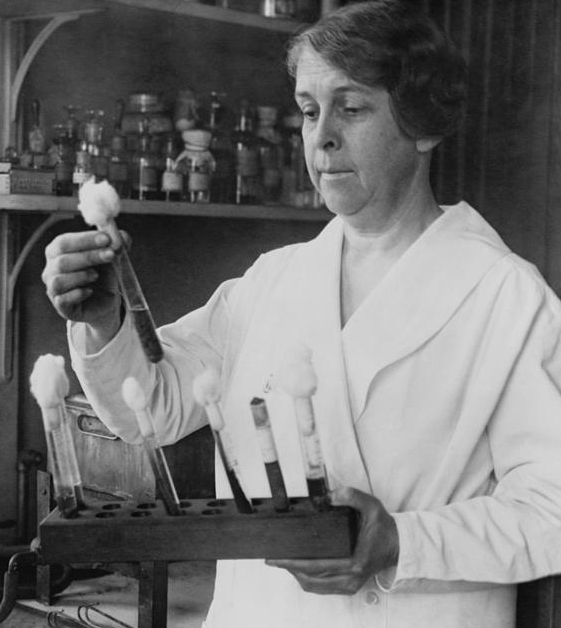![]()
Alice Evans demonstrated that unpasteurized cow’s milk could transmit the disease undulant fever to humans. Although initially dismissed by sceptics, her discovery eventually helped lead to the mandatory pasteurization of milk in the 1930s. “Today, Evans’ discovery is recognized as one of the most important medical findings of the twentieth century and constitutes an important chapter in the history of infectious diseases,” according to Rita Colwell.
In 1917, Evans discovered that the microorganism that caused undulant fever in humans was nearly identical to what caused spontaneous abortion, infertility, weight loss, and decreased milk production in cows.
Born to a farming family in rural Pennsylvania, she took advantage of a two-year, tuition-free nature study course offered to rural schoolteachers by Cornell University. There she discovered a love for science and graduated with a bachelor’s degree in bacteriology and then a master’s degree from the University of Wisconsin.
Evans joined a US Department of Agriculture research group on the Wisconsin campus, then transferred to Washington DC where a new lab had been built. She was assigned to study the bacteria that existed in freshly drawn milk.
In 1922, Evans contracted undulant fever herself, from which she suffered the rest of her life.
References:
- Biography by Rita Colwell
- Short biography in Distinguished Women of Past and Present
- Wikipedia biography
- National Women’s History Museum biography
- Bacterial flora of Roquefort cheese by Alice C. Evans. Journal of Agricultural Research 13: 225-233, 1918.
- Gentle Hunter: A Biography of Alice C. Evans, Bacteriologist by Virginia Law Burns. (Enterprise Pr, 1993)
